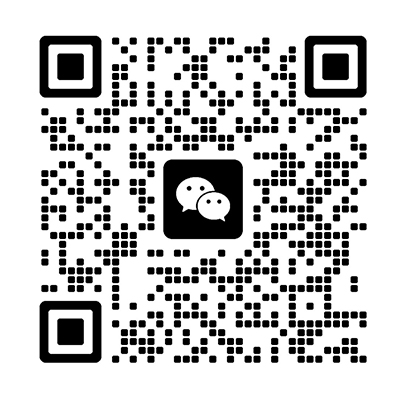©2024 Zhejiang Zhiben Law Firm. All rights reserved.Zhejiang
LABEL: Consumer Goods and Retail , Compliance business ,
In recent years, the domestic cigar market has developed rapidly, and the consumer group has a strong demand for imported cigars. The tobacco industry has also attached increasing importance to cigar categories. China National Tobacco Corporation once proposed to take high-end cigars as the leader and low-end cigars as the foundation, providing strong support for building a modern tobacco economic system and promoting high-quality development of the industry. However, at the same time, the prosperity of the cigar market and the imbalance between supply and demand have also given rise to smuggling. Especially in recent years, cigar smuggling has become increasingly rampant. In the first half of 2024 alone, dozens of cigar smuggling cases have been solved in Beijing, Shanghai, Nanjing, Guangzhou and other places, confiscating hundreds of thousands of smuggled cigars with a total amount of over 100 million yuan. Cigar smuggling has become a hot topic nowadays. Why have cigars become a high-risk area for smuggling? What are the common ways of smuggling cigars? Should cigars be classified as "goods" or "items"? What problems will arise from the secondary sale of smuggled cigars? This article will study and analyze the legal issues of cigar import smuggling based on recent judicial precedents and our practical experience in handling cigar smuggling cases.1、 The current situation of the Chinese cigar market and the reasons for smuggling
(1) Domestic cigars are currently unable to meet the needs of domestic consumers
On the one hand, cigars, as an imported product, have always been "valued by the ocean". When it comes to cigars, consumers often think of high-quality cigar producing countries such as Cuba, the Dominican Republic, Brazil, as well as top foreign cigar brands such as "Cohiba", "Davidoff", "Romeo and Juliet". For domestic cigars, consumers often know very little and even have biases. On the other hand, China's domestic cigar industry started relatively late and is still in its early stages. There is still a certain gap between the quality level, manufacturing process, and brand influence of cigars and internationally renowned brands, which temporarily cannot meet the needs of domestic consumers.
(2) The imbalance between the quantity and category of imported cigars by tobacco companies and consumer demand
In the situation where domestic cigars cannot currently meet consumer demand, consumers tend to purchase foreign cigars. The imported cigars in our country are generally collected by China Tobacco Import and Export Corporation based on the demand situation reported by tobacco companies in various cities, and an annual import plan is proposed to the National Tobacco Monopoly Administration. After approval, they are imported from abroad and issued to tobacco companies in various cities. This type of cigar imported and sold through formal channels is commonly known as the "Guoxing" cigar. However, it is understood that the number and variety of domestically produced cigars circulating in the market are relatively small, which cannot meet the huge market demand, especially for ordinary cigar consumers in third - and fourth tier cities who find it difficult to purchase cigars through formal channels.
(3) The high threshold and tax rate of cigars provide profit space for smuggling
Considering the needs of consumers, the government allows them to purchase cigars from overseas by carrying or mailing. In this case, customs manage cigars as personal belongings and impose certain restrictions on the quantity and amount of imported cigars, which are limited to consumers' personal use. According to relevant regulations, the comprehensive tax rate for cigars imported under general trade is 120.7% (calculated based on the most favored nation tax rate, currently the main cigar importing countries in China all apply the most favored nation tax rate), while the import tax rate for cigars as personal items is 50%. The tax rate difference between the two is significant, which makes it much cheaper for consumers to purchase cigars through online shopping than buying domestic cigars, and also provides profit margins for smuggling.
Based on the above three reasons, driven by consumer demand and economic interests, some consumers may make false declarations to customs when importing, in order to further reduce purchase costs by paying less taxes; There are also criminals who seek profits by smuggling cigars at low prices and then selling them at high prices, which not only causes huge losses to the national finance, but also disrupts the circulation order of the domestic cigar market.
2、 The main ways of smuggling cigars in practice
(1) Smuggling cigars through 'water travelers'
'Water tourists' refer to individuals employed by others to help others carry ordinary items into and out of the country. The essence of hiring "drifters" for smuggling is to engage in "ant moving" style smuggling, which involves smuggling cigars into the country through undeclared channels in batches, multiple times, and accumulating small amounts. For example, in a cigar smuggling case in Guangdong Province, the organizers of the "hookah" distributed the involved cigars to multiple "hookahs" who smuggled the goods through an undeclared channel at the port and handed them over to the defendant.
(2) Falsely declaring smuggling through postal channels
False declaration of smuggling refers to the act of a person purchasing cigars overseas, and in order to smoothly clear customs and reduce import taxes and fees, making false declarations to customs through means such as false product names, low prices, and false trade methods. The above three false declaration methods will all constitute smuggling behavior, and in practice, most cases will have multiple methods at the same time.
1. False reporting of product names
The tax payable on imported goods is related to the tax rate applicable to the goods. The postal tax rate for cigars is 50%, which is the highest among all postal tax rates. When declaring, the perpetrator usually falsely reports cigars as other low tax items such as "food" or "other items" with a tax rate of 10%, and achieves the goal of underpaying taxes through a 40% tax rate difference. For example, in the case of smuggled cigars in Beijing, the perpetrator requested overseas cigar delivery personnel to write "gift", "daily necessities" and other product names on the package, in order to lower the applicable tax rate and pay less tax.
2. Underquote prices
The reason why the perpetrator underreported the price is generally twofold: firstly, to comply with the customs' regulatory requirements for postal items; The second is to declare to customs at a price lower than the actual transaction price, thereby directly achieving the goal of underpaying taxes. Taking Gao Xiba's Robutu cigar as an example, the selling price on overseas websites is about $70 per cigar, and most people declare it as $3-5 per cigar. For example, in a cigar smuggling case in Guangdong, the defendant continuously lowered the declared price, tested the minimum declared price allowed by customs for cigars, and finally declared to customs at $3 per cigar.
3. Falsifying trade methods
The perpetrator will falsely declare cigars that should have been imported through general trade as personal postal items and lower the tax rate to reduce the taxable amount. Actors often use methods such as splitting packages or borrowing someone else's name to receive goods, in order to comply with the requirements for personal belongings entering the country and evade customs supervision. For example, in a cigar smuggling case in Fujian, the perpetrator requested cigar website staff to split the same batch of goods into multiple parcels and send them to multiple cities in mainland China, using their own and others' identity information as recipients to evade customs supervision.
(3) Indirect smuggling
Article 155 of the Criminal Law stipulates that subsequent acts of purchasing private goods shall be classified as smuggling crimes through legal drafting. In practice, smugglers of cigars usually post advertisements on social media platforms such as social media and forums to resell smuggled cigars for profit, gradually forming small circles or even developing into an industry chain. If consumers knowingly purchase smuggled cigars from individuals, a large quantity may be considered as indirect smuggling. For example, in a smuggling case in Guangdong Province, the perpetrator knowingly purchased a large amount of smuggled tobacco from the smugglers despite knowing that the tobacco they sold was smuggled into the country, constituting a smuggling crime.
3、 Analysis of the Attributes of Cigars as "Goods" and "Items"
(1) Regarding 'self use and reasonable quantity'
In judicial practice, whether smuggled cigars should be taxed based on the item or the goods is one of the controversial points between the prosecution and defense, especially regarding how to determine the behavior of buying cigars for both personal use and sale. Some people believe that the criminal amount should be calculated separately according to the items and goods, while others believe that for smuggling large quantities, even if there is personal use, it should be uniformly calculated according to the goods, and the self use part should only be recognized as a sentencing circumstance. Through our analysis of past precedents and smuggling defense practices, we believe that both viewpoints have certain validity and need to be analyzed on a case by case basis.
From a cultural and theoretical perspective, according to the definition in the Modern Chinese Dictionary, the most essential difference between goods and items is whether they are available for sale, which is also in line with the understanding of ordinary people towards goods and items. At the legal level, Article 64 of the Regulations on the Implementation of Customs Administrative Penalties defines goods as follows: "Goods refer to luggage and items that individuals transport or carry into or out of the country, as well as items that are mailed into or out of the country, including currency, gold, silver, etc. If they exceed the reasonable quantity for personal use, they are considered as goods. Among them, "self use" refers to the passenger or recipient's personal use, gift to relatives and friends, rather than for sale or rental; Reasonable quantity "refers to the normal quantity determined by the customs based on the situation of the passenger or recipient, the purpose of travel, and the duration of residence. In addition, the Working Group on Amending the Customs Law of the General Administration of Customs believes in its compilation of the Interpretation of the Customs Law of the People's Republic of China that it is possible to distinguish between "goods" and "merchandise" by determining whether they have trade attributes based on substantive requirements.
Therefore, the criteria for judging items and goods mainly depend on the understanding of "trade nature", as well as "self use" and "reasonable quantity". The regulations on "trade nature" and "self use" are relatively clear and easy to understand, but the customs do not have specific standards for reasonable quantities. In theory, there are views that suggest referring to the customs' regulations on the quantity and limit of personal carrying and mailing. In practice, it is more up to customs staff to make discretionary decisions based on the principles of reasonableness and fairness in on-site law enforcement work.
We believe that in practice, when identifying "goods" and "items", especially in criminal cases, the substantive judgment standard of whether they have a trade nature should be the main criterion, and whether they meet the "reasonable quantity" requirement should be used as an auxiliary judgment factor. Specifically, the first step should be to determine whether the perpetrator purchased cigars for "personal use" or "sale", that is, whether the cigars have trade attributes. If there is evidence to prove that the perpetrator purchased cigars for personal use or sale, they should be identified as items and goods according to the corresponding circumstances. Secondly, if the evidence in the case is insufficient to prove the purpose of the perpetrator's purchase of cigars, the auxiliary judgment standard of "reasonable quantity" can be referred to. If the quantity far exceeds the reasonable quantity and the perpetrator cannot provide a reasonable explanation, it can generally be considered as goods; If the quantity only slightly exceeds the reasonable limit, or if a reasonable explanation can be given based on the actual usage of the perpetrator, it should be deemed as an item in favor of the defendant according to the principle of doubt.
The above viewpoint can also be confirmed in some precedents, such as in the case of smuggling cigars in Guangdong Province, where the defendant smuggled cigars for personal use and was convicted of smuggling ordinary goods by the court. In a cigar smuggling case in Shanghai, the defendant had evidence to prove that some cigars were for personal use and some were for sale. The court determined the charges based on the items and goods separately. In a cigar smuggling case in Beijing, the defendant argued that the cigars were for personal use but failed to provide evidence. The court found that the defendant smuggled a large number of cigars in a short period of time, far exceeding the amount that individuals could use for personal use, and determined it as the crime of smuggling ordinary goods.
(2) Regarding 'an indivisible item'
According to Announcement No. 43 of 2010 by the General Administration of Customs, individuals who mail inbound and outbound goods exceeding the prescribed limit shall handle the return procedures or go through customs clearance procedures in accordance with the regulations for goods. If there is only one item in the package that cannot be divided, and it exceeds the prescribed limit, but is confirmed by customs to be for personal use, the customs clearance procedures can be handled according to the regulations for personal items.
The customs did not provide a detailed explanation for "indivisible", but according to the provisions of the Civil Code on the division of common property and relevant legal principles, we believe that "indivisible" can be understood as a separate entity with independent packaging that is difficult to divide or would reduce its value. Specifically, when it comes to cigars, a box of cigars can be seen as an "indivisible" whole. In the declaration process, if the perpetrator's parcel contains multiple boxes of cigars and exceeds the prescribed limit, the customs will generally require it to be returned. If false declaration is used to evade customs supervision and enter the country during the declaration process, there are different opinions on whether it should be recognized as an item or a cargo in subsequent accountability, and no clear court opinion on this issue has been found in existing judicial documents. We believe that the Announcement No. 43 of the General Administration of Customs in 2010 only stipulates that "customs clearance procedures shall be carried out in accordance with the regulations for goods", and does not deny the nature of the goods. Therefore, when multiple items are included in a parcel that exceeds the limit value, it should not be judged as goods at all, but should be returned to the fundamental issue of whether it has a trade nature for substantive examination.
4、 Analysis of the secondary sales behavior of smuggled cigars
(1) Smuggling of ordinary goods and illegal business operations
According to Article 2 of the Interpretation of the Supreme People's Court and the Supreme People's Procuratorate on Several Issues Concerning the Specific Application of Law in Handling Criminal Cases of Illegal Production and Sale of Tobacco Monopoly Products, those who illegally operate tobacco monopoly products without corresponding license certificates shall be convicted and punished for the crime of illegal operation. Therefore, the act of smuggling cigars into the country and then selling them again may constitute both the crime of smuggling ordinary goods and the crime of illegal business. Due to the fact that the perpetrator's purpose in smuggling cigars was to profit from secondary sales, it can be considered that the perpetrator's smuggling behavior and sales behavior have an inherent connection between means and purposes, and should be punished as an implicated offender with one serious crime. In practice, most cases have also adopted this judicial approach. For example, in a tobacco smuggling case in Shandong, the defendant smuggled tobacco into the country and illegally resold it without obtaining a tobacco monopoly retail license, which constitutes the crimes of smuggling ordinary goods and illegal business operations, and is sentenced to one of the serious crimes of complicity. But there are also cases where the act of selling smuggled tobacco is punished with multiple offenses, such as a smuggling case in Lianyungang where the perpetrator knowingly purchased smuggled tobacco multiple times before reselling it again. The court believes that the purchase behavior of the perpetrator constitutes indirect smuggling, and the sales behavior constitutes illegal operation, and is subject to multiple crimes and penalties. We believe that the verdict is open to debate.
(2) Smuggling of ordinary goods and money laundering
Smuggling is an upstream crime of money laundering, and the act of smuggling cigars and then selling them may constitute self money laundering. One viewpoint holds that sales are an inevitable extension of smuggling crimes, and there is a relationship of connection or absorption between the two. Therefore, downstream money laundering crimes should not be recognized; There are also views that the legislative purpose of self money laundering and the consideration of preventing upstream crimes should be combined with the punishment of upstream smuggling crimes. We tend to agree with the first viewpoint.
If we only examine the act of selling smuggled cigars, objectively speaking, the perpetrator has indeed achieved the effect of concealing and concealing the proceeds of smuggling crimes through the sale of smuggled cigars. However, considering the relationship between smuggled goods and sales behavior, "selling" to the outside world is already the rightful meaning of the crime of smuggling ordinary "goods", and should not be repeatedly evaluated. Secondly, although sales activities objectively have the effect of concealing and concealing criminal proceeds, their subjective purpose is not to conceal or conceal, but to achieve economic benefits, and there is no need for separate punishment. Therefore, the act of smuggling cigars and then reselling them should be convicted of the crime of smuggling, and in judicial practice, it is generally only sentenced to the crime of smuggling ordinary goods. Correspondingly, if the purchaser knowingly purchases cigars directly from the smuggler despite knowing that they are smuggled, their purchase behavior constitutes both indirect smuggling and money laundering. If the same behavior violates two charges, they should be punished as a double offender according to their imagination.
In practice, there are still cases where the perpetrator smuggles cigars and hands them over to others for secondary sales assistance. In such cases, the handling should be differentiated based on whether there is collusion in smuggling. If there is collusion in smuggling, it can be identified as an accomplice in smuggling, and the crime of smuggling ordinary goods can be convicted. This type of smuggling gang with clear division of labor is also common in practice; If there is evidence to prove that the seller did not conspire with smuggling activities, but knowingly sold smuggled goods on behalf of them, it can be deemed as money laundering.
5、 Summary and Suggestions
For cigar consumers, it is understandable to purchase foreign cigars based on their pursuit of higher quality of life and diversified demand for cigars. However, it is also the obligation of every citizen to comply with current laws and regulations, purchase through formal channels, and truthfully declare to customs. They should not make false declarations to customs in order to save costs, evade supervision or purchase smuggled cigars, nor should they use them as profit-making tools for secondary sales. Otherwise, they may face administrative penalties or criminal offenses.
For relevant law enforcement and judicial departments, on the one hand, they should face up to the normal needs of consumers and the current reality of supply-demand imbalance in the cigar market. They should try to correct and guide behaviors that are only used for personal use or as gifts to friends and family through administrative means, and provide opportunities for correction. On the other hand, severe crackdowns will be imposed on smugglers who engage in smuggling activities for profit, especially organized and planned smuggling gangs, in order to safeguard the lives, health, and safety of the people and maintain stable economic and social development.
In addition, corresponding policies should also be adjusted to adapt to the development and changes of the social economy, and better meet the needs of the public. One is to vigorously develop domestic cigars and manufacture high-quality and high-value domestic cigars. The second is to appropriately increase the variety and quantity of imported cigars, providing more choices and purchasing channels for domestic consumers. The third is to reasonably improve the relevant system for cigar imports, such as adding cigar categories to the list of cross-border e-commerce imported goods and the Hainan offshore duty-free list, and appropriately reducing cigar tariffs.





